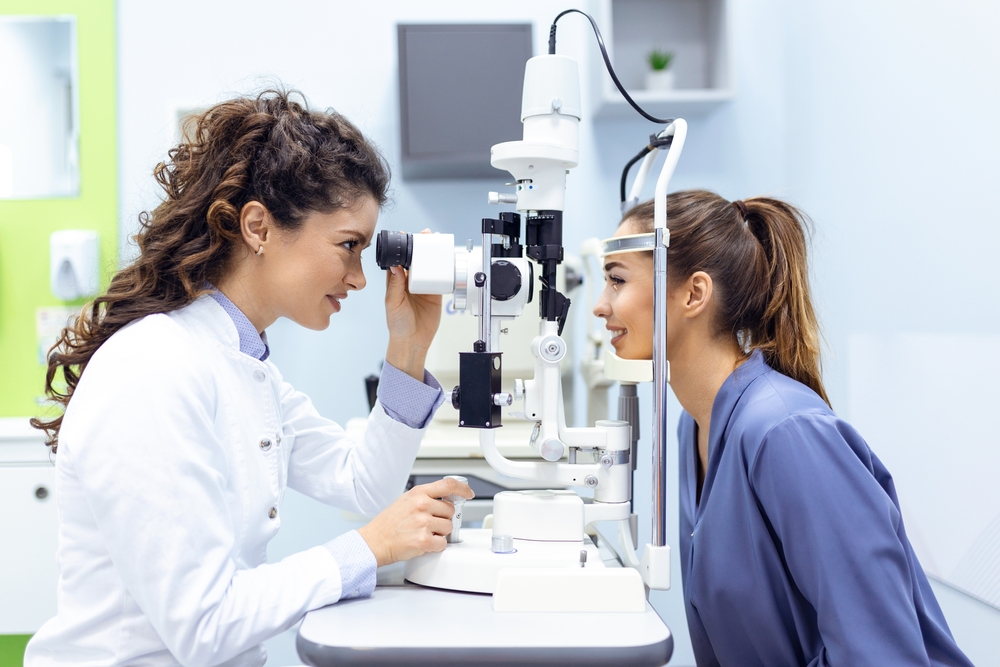Is Refractive Surgical Treatment Right for You? Variables to Consider for Better Eyecare
In the world of eye care, the choice to undergo refractive surgical treatment is a crucial one that demands thoughtful factor to consider. As individuals seek clearness and freedom from the constraints of rehabilitative lenses, countless variables come into play when determining the suitability of such a treatment. From the intricacies of one's eye health to the complexities of individual expectations and day-to-day behaviors, each aspect holds value in the broader landscape of refractive surgical treatment candidacy. By assessing these vital components with care and accuracy, a clearer course in the direction of educated decision-making emerges.
Eye Health Examination
When thinking about refractive surgical procedure, a comprehensive eye health and wellness evaluation is important to analyze the viability of the procedure for each and every individual. eye doctors in andalusia. This analysis entails a series of exams and examinations performed by an eye care specialist to establish the overall wellness of the eyes, the visibility of any hidden conditions, and the security of the refractive mistake
During the evaluation, different factors are taken right into account, such as the individual's case history, existing eye prescription, corneal density, student dimension, and tear movie top quality. These analyses help to determine any contraindications to refractive surgical treatment, such as corneal abnormalities, cataracts, or neglected eye infections. Additionally, the examination assists to handle client assumptions concerning the prospective outcomes of the surgical procedure based on their distinct eye characteristics.
Ultimately, the eye wellness analysis is crucial in guaranteeing the safety and security and performance of refractive surgical procedure, as it gives valuable understandings right into the person's eye wellness status and assists establish one of the most appropriate therapy choices for attaining optimum visual end results. (andalusia pediatrics)
Lifestyle Analysis
A comprehensive way of living evaluation is important in figuring out the suitability of refractive surgical procedure for a person's visual correction needs. Lifestyle aspects such as line of work, leisure activities, and day-to-day activities play an essential role in the decision-making process regarding refractive surgical procedure.
In addition, way of living habits such as sports engagement, outside activities, or even skincare routines can affect the healing process and total success of refractive surgical procedure. Individuals who engage in contact sports may require to take additional safety measures to protect their eyes during the recuperation period. Furthermore, people with comprehensive sun exposure might require extra post-operative like stop problems. By performing a detailed lifestyle analysis, eye care professionals can customize their referrals and treatment strategies to meet the distinct requirements of each person, inevitably bring about enhanced aesthetic end results and satisfaction.
Expectation Positioning

Setting realistic expectations includes extensive pre-operative discussions between the patient and the ophthalmologist. The cosmetic surgeon must transparently interact the possible risks, benefits, and constraints of the procedure (eye center andalusia). Individuals require to comprehend that while lots of people achieve 20/20 vision or better complying with refractive surgical procedure, some might still need glasses for particular tasks like reading or driving at night. Handling these assumptions assists protect against disappointment and frustration post-surgery, leading to an extra positive general experience for the person.
Risk Analysis

Factors that may increase the danger of complications consist of age, particular medical problems like autoimmune illness, unstable vision prescription, thin corneas, and impractical person expectations. In addition, selecting a experienced and skilled cosmetic surgeon, adhering to pre and post-operative treatment guidelines faithfully, and revealing any type of appropriate case history can aid alleviate risks.
To lessen the chance of complications, ophthalmologists carry out thorough pre-operative analyses to identify any contraindications to surgical procedure. They also go over the possible dangers and benefits with clients throughout the assessment process. By taking part in open communication and shared decision-making, both the individual and the eye doctor can function with each other to establish if refractive surgery is the ideal selection based on private danger profiles and wanted end results.
Consultation Importance
Considering the crucial role of notified decision-making in evaluating threats and possible difficulties in refractive surgical procedure, the appointment process holds substantial relevance in directing patients go now towards ideal results. During the appointment, the eye doctor evaluates the individual's eye health and wellness, refractive errors, and total viability for surgery. This preliminary evaluation is essential in establishing the most appropriate procedure for every person, taking into account factors such as corneal thickness, pupil dimension, and existing eye problems.
Furthermore, the consultation works as a chance for patients to review their assumptions, worries, and any type of questions they might have regarding the surgical treatment. Clear interaction in between the individual and the cosmetic surgeon useful site is necessary to ensure sensible expectations and a thorough understanding of the prospective dangers and benefits entailed.
Additionally, the appointment allows the doctor to discuss the various surgical alternatives offered, their corresponding end results, and the post-operative treatment needed. This comprehensive discussion equips individuals to make well-informed decisions regarding their eye treatment, leading to better fulfillment and end results post-surgery.
Verdict
In conclusion, people taking into consideration refractive surgery ought to undergo view publisher site an extensive eye health and wellness analysis, examine their way of life habits, align their expectations with prospective outcomes, assess the connected risks, and focus on assessments with eye treatment experts. These variables play a critical duty in figuring out the viability of refractive surgical procedure for every individual, making certain optimum results and complete satisfaction with the procedure.
Patients thinking about refractive surgical treatment commonly have high expectations relating to the results, anticipating perfect vision without the requirement for glasses or call lenses. While refractive surgical treatment can considerably enhance vision and minimize dependence on visual aids, it is essential for people to recognize that results may vary based on individual factors such as the degree of refractive error, corneal density, and general eye wellness.
By engaging in open communication and shared decision-making, both the client and the eye doctor can function with each other to figure out if refractive surgical treatment is the ideal selection based on individual danger profiles and preferred end results.
Taking into consideration the vital duty of notified decision-making in assessing risks and possible complications in refractive surgery, the assessment process holds significant relevance in assisting clients towards optimum end results. Throughout the examination, the eye doctor examines the patient's eye wellness, refractive errors, and general viability for surgical treatment.